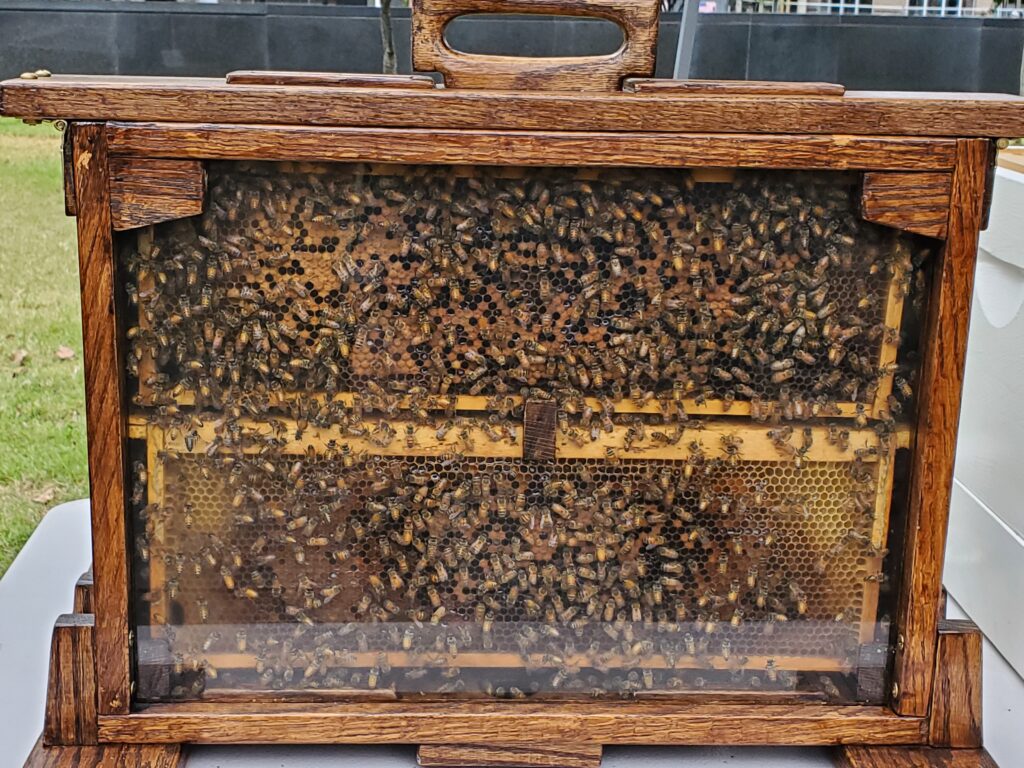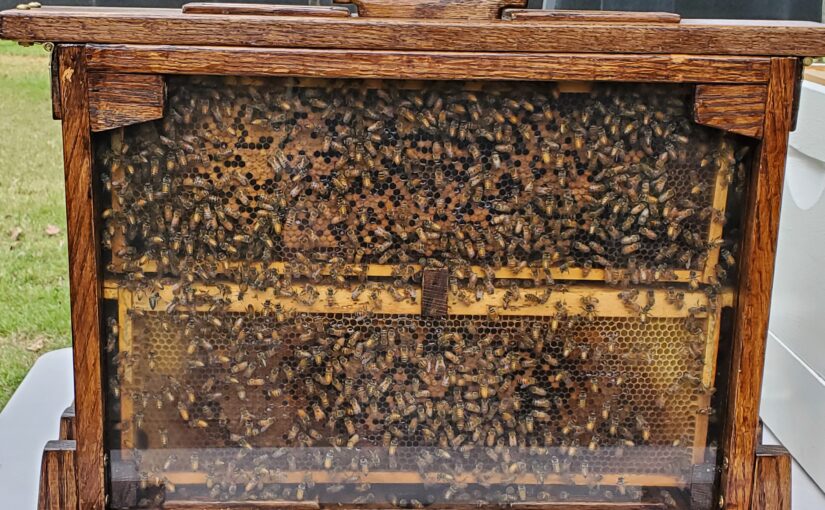By Sarah Hughes
In late Sept. or early Oct., the TN Honey Festival draws honey enthusiasts and festival goers in Nashville. Apiaries in Tenn. submit honey for competition and purchase.
Here are reviews of one local Springfield honey and one award winner from the TN Honey Festival.
According to https://www.benefits-of-honey.com/good-quality-honey/, a good quality honey has low water content, low HMF (Hydroxymethylfurfural), low adulteration with Inverted Sugars or additives, no visible pollen, and a pleasing color. While graded into light, amber and dark colors, these categories are thought to have little bearing on quality.
“Honey color is measured on the Pfund Scale in millimeters.” says Benefits of Honey, “While it is not an indicator of honey quality and there are exceptions to the rule, generally speaking, the darker color the honey, the higher its mineral contents, the pH readings, and the aroma/flavor levels. Minerals such as potassium, chlorine, sulfur, iron, manganese, magnesium, and sodium have been found to be much higher in darker honeys.”
Typically color and taste are affected by what pollen bees pick up and digest. So no two honeys are exactly alike, though the process can be pretty similar.

“Honey is food made by bees for bees, but many people also enjoy it” says Web MD at https://www.webmd.com/diet/honey-health-benefits.
“Raw honey comes straight from a beehive,” says WebMD, “Some honey producers pass the substance through a coarse filter to remove foreign matter, but it remains unprocessed food. Most of the honey sold in stores goes through a heating process to make it less sticky and easier to filter.”
“High temperatures pasteurize honey and destroy yeast cells in it that can cause unwanted fermentation,” Says WebMD, “Honey is basically sugar. It is actually higher in calories than the typical white sugar used for cooking or baking. Because it is sweeter, you may need less if you’re using it as a substitute. Also, honey adds flavor that white sugar does not have.”

Richard’s Pure Raw Honey hails from a Springfield apiary established in 1903. Owned by Wayne D. Richard, this honey comes in an affordable plastic squeeze bottle filled with a generous amount for $12. It’s dark golden-brown and barely transparent. It has a rich flavor, sweet with faint toffee flavors in the mid to after taste. It smells like dandelion and honeysuckle.
Tyler Pippen, who enjoys going to farmers markets and tasting honey, says of Richard’s Pure Raw Honey, “the flavor is sweet but subdued due to its probable age. It smells of raw honey. There’s a separation of sugar and nectar.”
Just B’s Pure Raw Honey was the festival winner of 2021. It is a clear warm amber color and comes in a cute glass hexagon jar. Just B’s lists which queen made each honey and “Queen Cora” made this one. It has a watery thin consistency. It tastes like it would go well with green teas, herbals and juices.
Pippen says of Just B’s Pure Raw Honey, “Is sweet and smells a little of pollen, which makes me feel like it was bottled in their own backyard or farm. Smells like raw honey in its most potent, purest form. The consistency is like water. There’s subdued hints of something other than honey…jasmine? Lavender? I like it.”
Honey is a tasty treat that may have health benefits. According to the Mayo Clinic at https://www.mayoclinic.org/drugs-supplements-honey/art-20363819#:~:text=Studies%20suggest%20that%20honey%20might,wound%20healing%2C%20particularly%20in%20burns., “Honey contains mostly sugar, as well as a mix of amino acids, vitamins, minerals, iron, zinc and antioxidants.”
That viscous little golden substance may be good for most people’s well being when consumed appropriately.
The Mayo Clinic lists the following health benefits, “Research on honey for specific conditions includes:
Cardiovascular disease. Antioxidants in honey might be associated with reduced risk of heart disease.
Cough. Studies suggest that eucalyptus honey, citrus honey and labiatae honey can act as a reliable cough suppressant for some people with upper respiratory infections and acute nighttime cough.
Gastrointestinal disease. Evidence suggests honey might help relieve gastrointestinal tract conditions such as diarrhea associated with gastroenteritis. Honey might also be effective as part of oral rehydration therapy.
Neurological disease. Studies suggest that honey might offer antidepressant, anticonvulsant and anti-anxiety benefits. In some studies, honey has been shown to help prevent memory disorders.
Wound care. Topical use of medical-grade honey has been shown to promote wound healing, particularly in burns.”
However, honey’s benefits aren’t for everyone, such as those with allergies and young babies.
Mayo Clinic cautions, “Avoid giving honey — even a tiny taste — to babies under the age of 1 year. Honey can cause a rare but serious gastrointestinal condition (infant botulism) caused by exposure to Clostridium botulinum spores. Bacteria from the spores can grow and multiply in a baby’s intestines, producing a dangerous toxin.”
‘Some people are sensitive or allergic to specific components in honey, particularly bee pollen.” Says Mayo Clinic, “Although rare, bee pollen allergies can cause serious, and sometimes fatal, adverse reactions.”
Honey can be purchased from health food stores or farmers markets, but WebMD points out that processing doesn’t affect the health advantages honey may provide.
“Raw honey is not superior to processed honey in nutrition or health benefits,” says WebMD, “Researchers found that processing does not affect honey’s nutritional value or antioxidant levels.”
“Honey contains antioxidants, which can protect the body from inflammation. Inflammation can lead to a variety of health issues, including heart disease, cancer, and autoimmune disorders. One study discovered that antioxidants in buckwheat honey were detectable in blood plasma, showing that eating honey could enhance antioxidant activity in the body.”
Supporting local apiaries by buying honey at festivals or farmers markets helps the environment by promoting green practices.
“The food is typically grown near where you live, not thousands of miles away or another country,” says the USDA at https://www.usda.gov/media/blog/2012/07/02/top-reasons-shop-farmers-market, “Shopping at farmers markets also supports your local farmers and keeps the money you spend on food closer to your neighborhood.”
Check out your local farmers market or the next TN Honey Festival to try your own honey. Tickets can be purchased at https://tennesseehoneyfestival.com.
